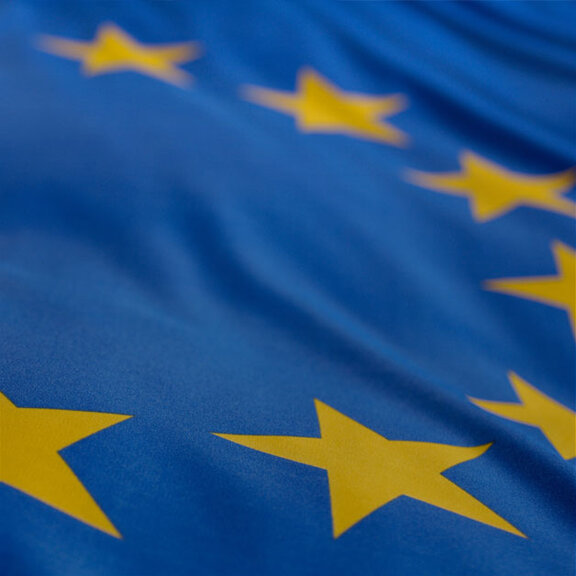Climate protection, AI, competition and China: EU adopts new standardization strategy

On 2 February, the European Commission presented its new standardization strategy. From now on, the Commission aims at more intensive co-operation, higher speed and a clear focus in the development of standards. "The strategy underlines not only the importance of standardization for the future of the European single market, but also for addressing societal challenges, such as the climate crisis or digital transformation," says Austrian Standards CEO Valerie Höllinger.
In early February, the European Commission adopted a new standardization strategy. The bottom line: The current EU strategy considers standardization to be of great importance for the future of Europe. The objective of the Commission is "to put standards back at the core of a resilient, green and digital EU single market and to strengthen the global role of the European standardisation system." The strategy was designed against the backdrop of the stronger involvement of China. The People's Republic has followed a very clear approach for several years: China has increased the number of secretariats held within the International Organization for Standardization (ISO) from 6 to 71 in just a few years. The effect: Countries prevailing in standardization ensure significant advantages for their export industries. Thus, they stake the claims for the future, especially in fields such as artificial intelligence, new mobile networks and raw materials for electric mobility.
More networking in Europe – identifying important issues earlier
As a result, the fight for standards is fierce: They determine which products succeed. Each standard gives rise to advantages and disadvantages in competition. The strategy of the EU aims at further intensifying co-ordination among different stakeholders – for example, by means of a co-ordinator (chief standardization officer) in the Commission who keeps an overview of strategically important standardization policies. Furthermore, a high-level forum is set up to bring together representatives of the European Commission, research, civil society, industry, member states and standardization organizations. This forum is to identify important subjects for standardization earlier. The desired effect: positive impacts on the implementation of standardization projects and a more targeted approach to important issues.

president DDr. Anton Ofner © feelimage/Matern
Strategy highlights the importance of standardization for our future
Valerie Höllinger, Managing Director of Austrian Standards: "We welcome the strategy of the EU Commission. It does not only underline the importance of standardization as a strategic tool for the future of the European single market, but also for addressing societal challenges, such as the climate crisis or digital transformation. At Austrian Standards, we stand for putting the spirit of co-operation in practice – which we want to further intensify in future." In early summer, Austrian Standards will launch a broad debate bringing together key stakeholders to discuss Austria's contribution to the standardization strategy and examine Austria's performance in international standardization.
Inspiring enthusiasm for standardisation
Austrian Standards' President Anton Ofner stresses: "We firmly believe that the European standardization system is suitable for promoting European strategic interests. The example of China illustrates that whoever has the standards prevails in the market. Austria is excellently integrated in networks and well represented in international standardization. Therefore we should make efforts together with other European and Austrian partners to inspire enthusiasm for standardization among even more enterprises – especially SMEs – and researchers and to establish it as a strategic tool for success in exports and innovation."
Why standards?
In our perception, standards play a minor role. In most cases, we only notice them when they are not in place any more: when paper does not match the printer, when the GMS network fails, when Netflix starts lagging or when international supply chains are disrupted. Standards are considered the "secret of the European single market", and phenomena like globalization would be unthinkable without standards. This is why standards are frequently related to hard economic interests: An international standard makes it easy for domestic enterprises to sell products all over the world. Differing standards adopted in various countries may result in costly adaptations to products. Hence, standard are a strategic cog in the economy's machine.
Go to the standardization strategy of the European Commission:
https://ec.europa.eu/commission/presscorner/detail/de/ip_22_661



